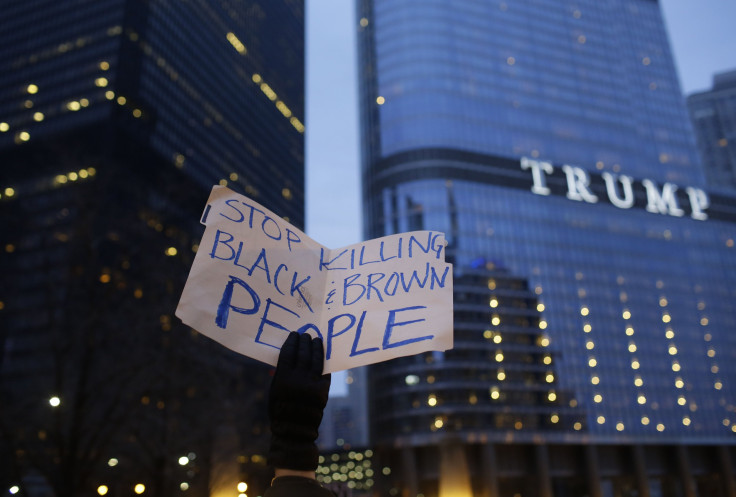Facebook Executive Wants Video Of Police Killing Her Brother Made Public
The sister of Chinedu Valentine Okobi, an unarmed man who died after an altercation with sheriff’s deputies near San Francisco, claimed a video footage contradicted public statements made by the San Mateo County Sheriff's Office after his death. Speaking to USA Today on Sunday, Facebook executive Ebele Okobi, on behalf of her family, called for an independent investigation into her brother's death.
According to Ebele, the video, pieced together by the San Mateo County District Attorney’s Office from dashcam and other footage to reconstruct the events Oct. 3, was shown to Chinedu’s mother and other family members by the district attorney's office Friday. The family has been looking for answers as to how and why Chinedu died, and were lobbying for the creation of an independent body that could investigate the use of force by law enforcement officials for such incidents.
The 34-minute-long video allegedly contradicted key statements from deputies who claimed Chinedu assaulted law enforcement officers due to which they tackled and repeatedly tased him, Ebele said, adding the footage only showed the Morehouse College graduate struggling to save his own life. The incident took place on the 1300 block of El Camino Real Millbrae.
"They are trying to make my brother, a homicide victim, responsible for his own murder in the court of public opinion," Ebele, who works as Facebook’s public policy director for Africa, told USA Today. The news outlet said they have not reviewed the video.
In a Facebook post, Ebele described what she saw on the video and how the moments contradicted the deputies' claims.
Civil rights attorney John Burris and Chinedu's family have rejected the assertion the 36-year-old father was violent. Burris previously said two videos shot by bystanders raised a lot of questions about the use of the taser on Chinedu. However, none of these video can be verified independently as they haven't been made public.
People are searching for answers about an unarmed Black man who died after an encounter with five Northern California police officers this month.Chinedu Valentine Okobi #RememberHisName https://t.co/Tx5WMuPgiQ
— EBONY MAGAZINE (@EBONYMag) October 16, 2018
The San Mateo County District Attorney, Steve Wagstaffe, who was investigating the case, said videos of the incident will be made public only after all witnesses have been interviewed so they were not influenced by seeing them.
"After our investigation is completed and I make my decision on the case, I will follow our standard procedure in this county and everything in the investigation will be available to the media and the public and anyone can review the reports, videos and form their own opinion," Wagstaffe told USA TODAY in an email.
Ebele, who was renewing national debate over the deaths of unarmed black men at the hands of police officers, wrote in a Facebook post Sunday afternoon: “Now that I have seen the video, I am so angry. It was always wrong, it was always a tragedy, but now, knowing that there wasn’t even the pretense of police stopping him ‘for his own safety’, seeing the way they tortured him to death for simply walking down the sidewalk - this is a crime.”
Chinedu, who has a 12-year-old daughter, had a history of mental illness, which the family believes may have caused him to walk into traffic Oct. 3. The sheriff’s department said in a statement Chinedu was “running in and out of traffic” early that afternoon and “assaulted” a sheriff’s deputy who approached him.
According to the Counted — the Guardian’s investigation into every police killing in the United States in 2015 — more than one in five cases of Americans killed by the police reportedly involved mental health issues.
“We know that this is going on all around the country: police brutality, police killings. People who are new to this should not brush off these killings. They should continue to ask questions. They shouldn’t accept the police narrative,” Chinedu's sister told USA Today. “Imagine what it is to live like this, to know that you can be killed, and a story will be told to blame you for your death and everyone will just move on.”

© Copyright IBTimes 2025. All rights reserved.





















